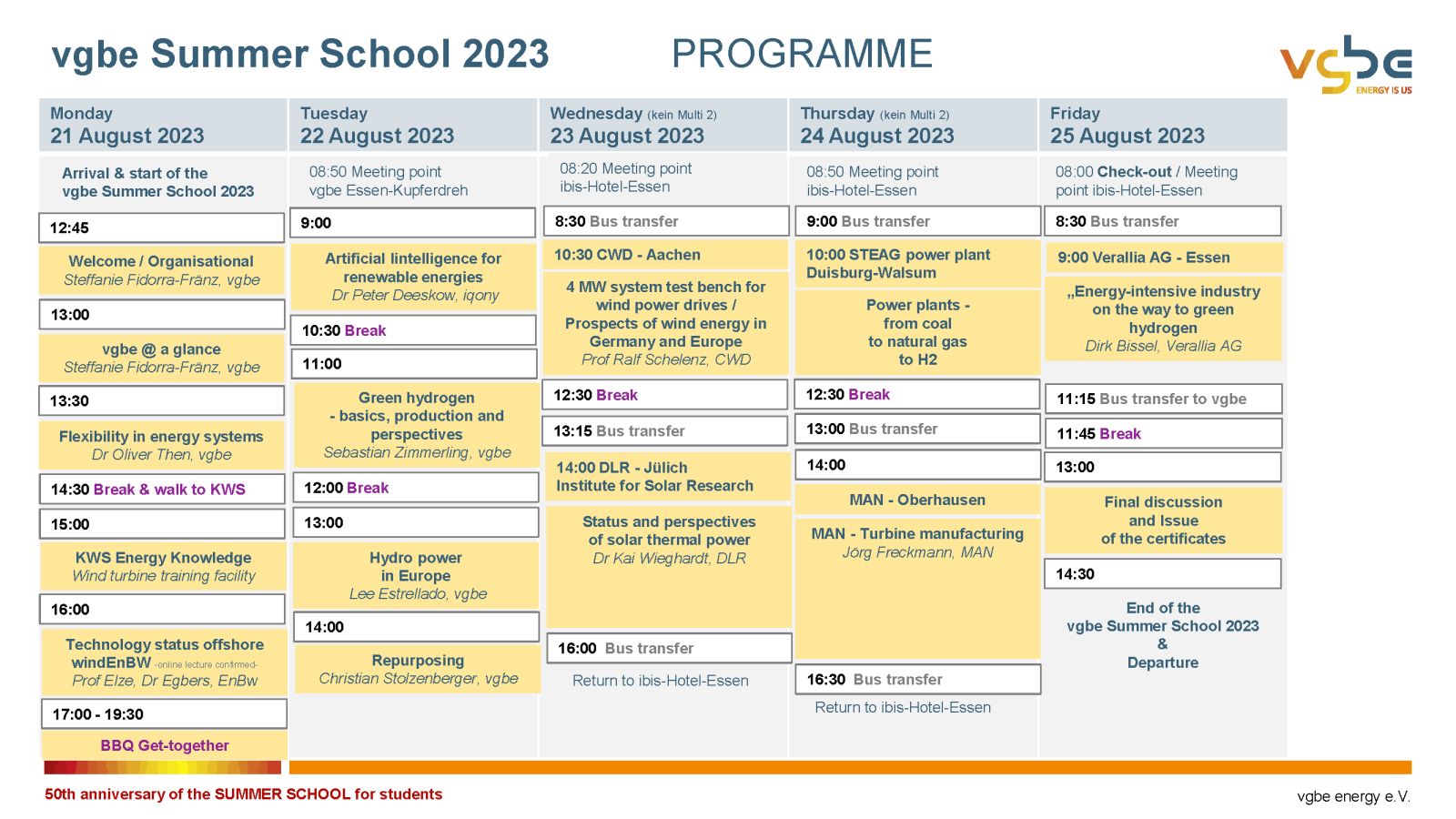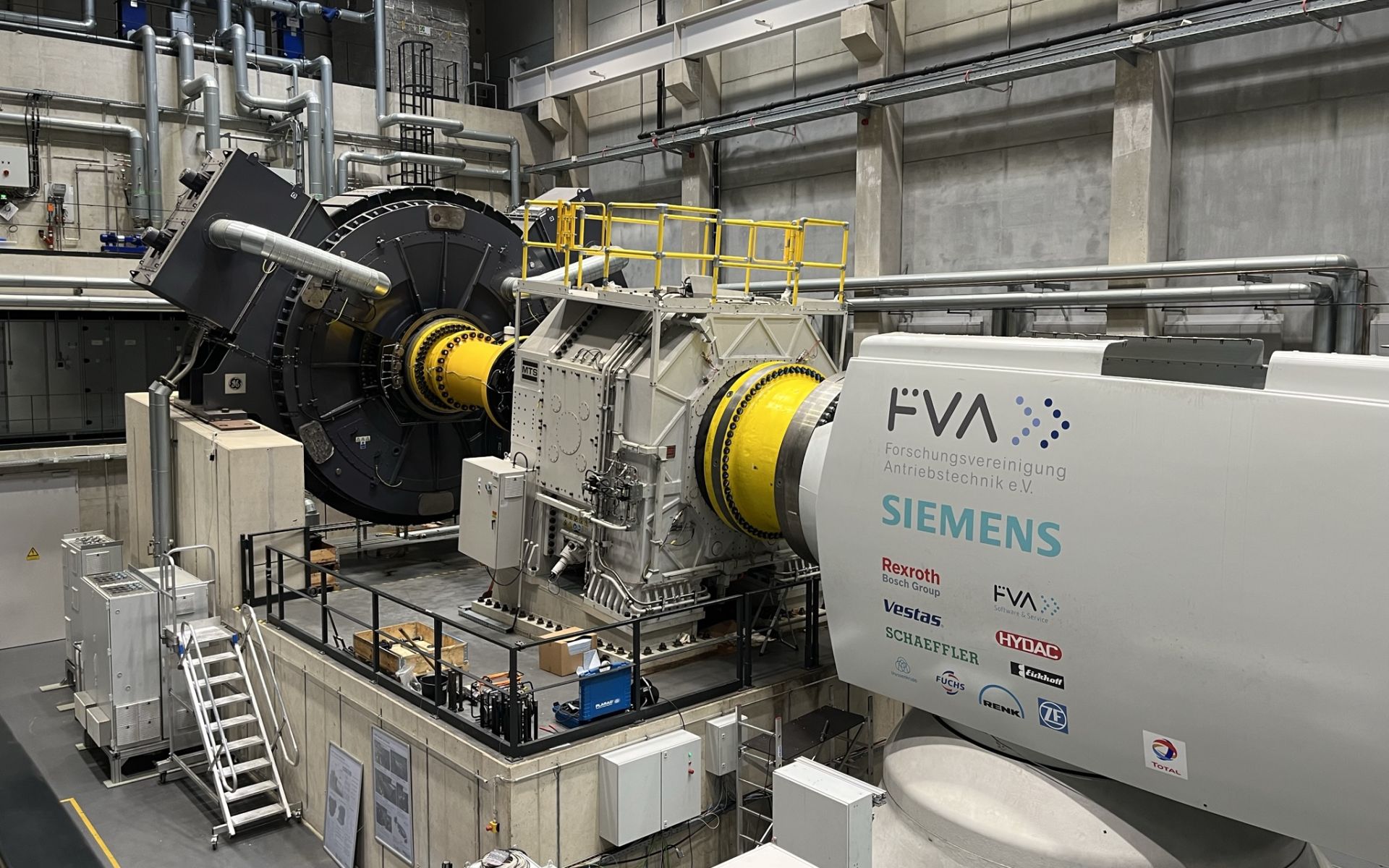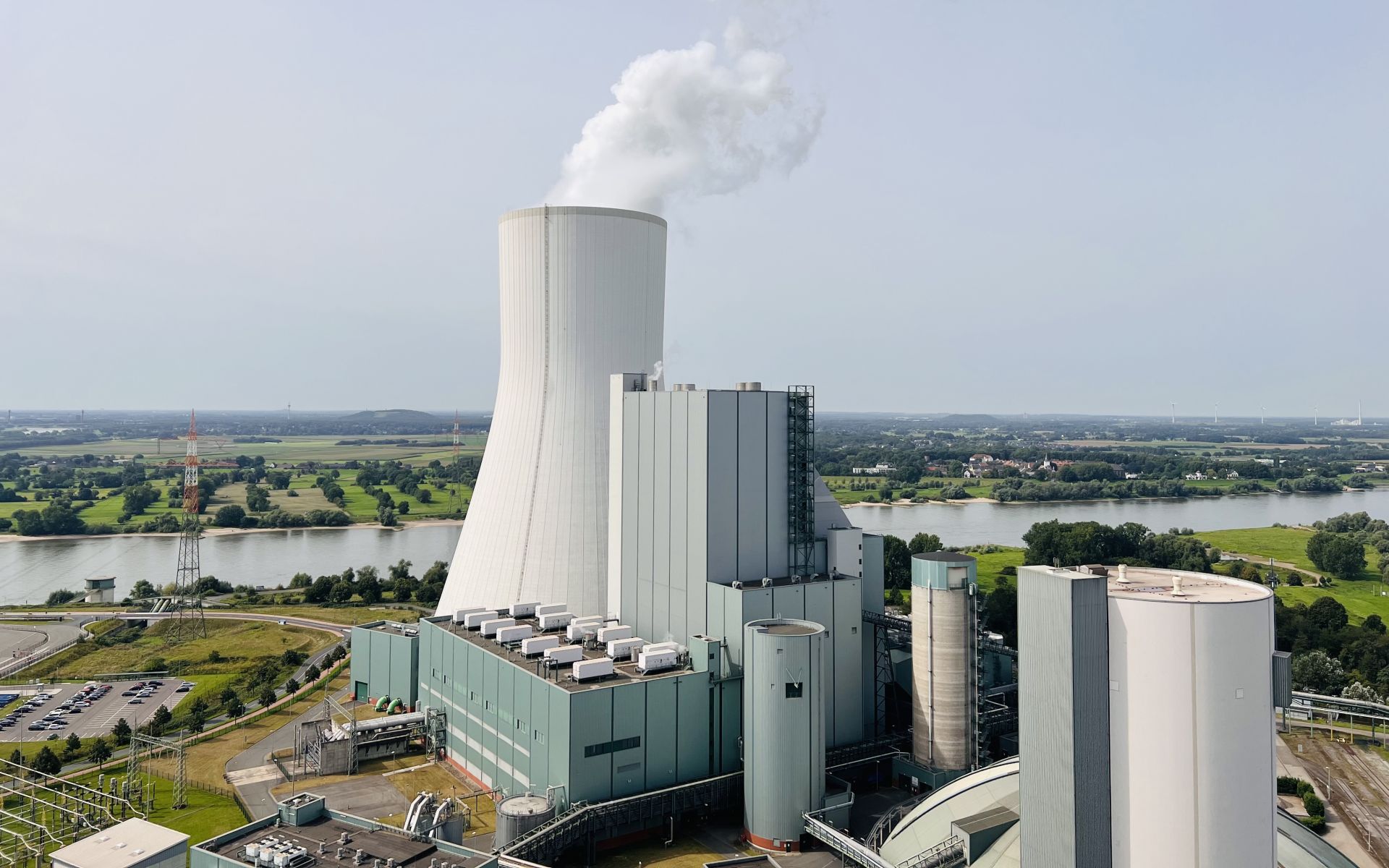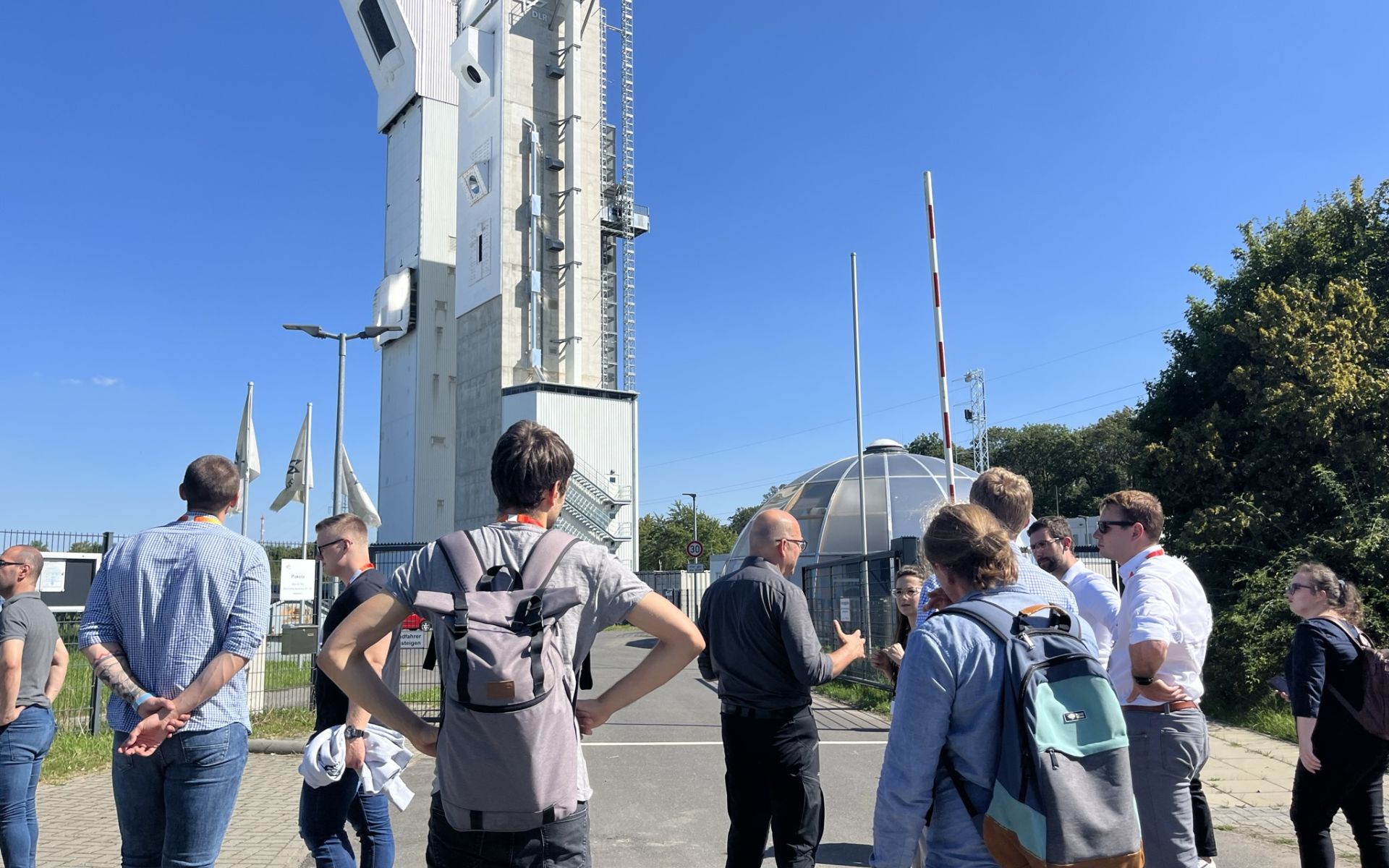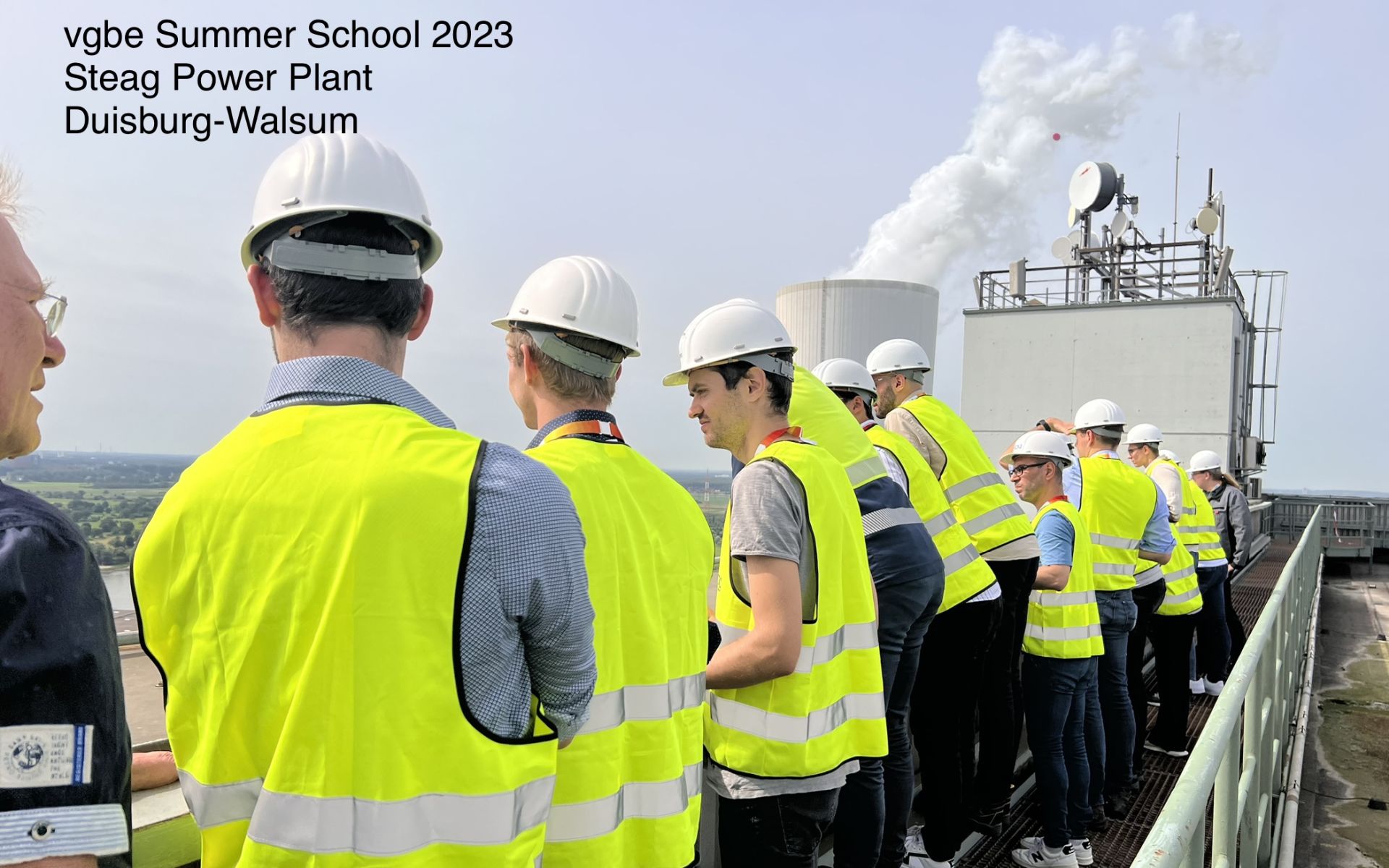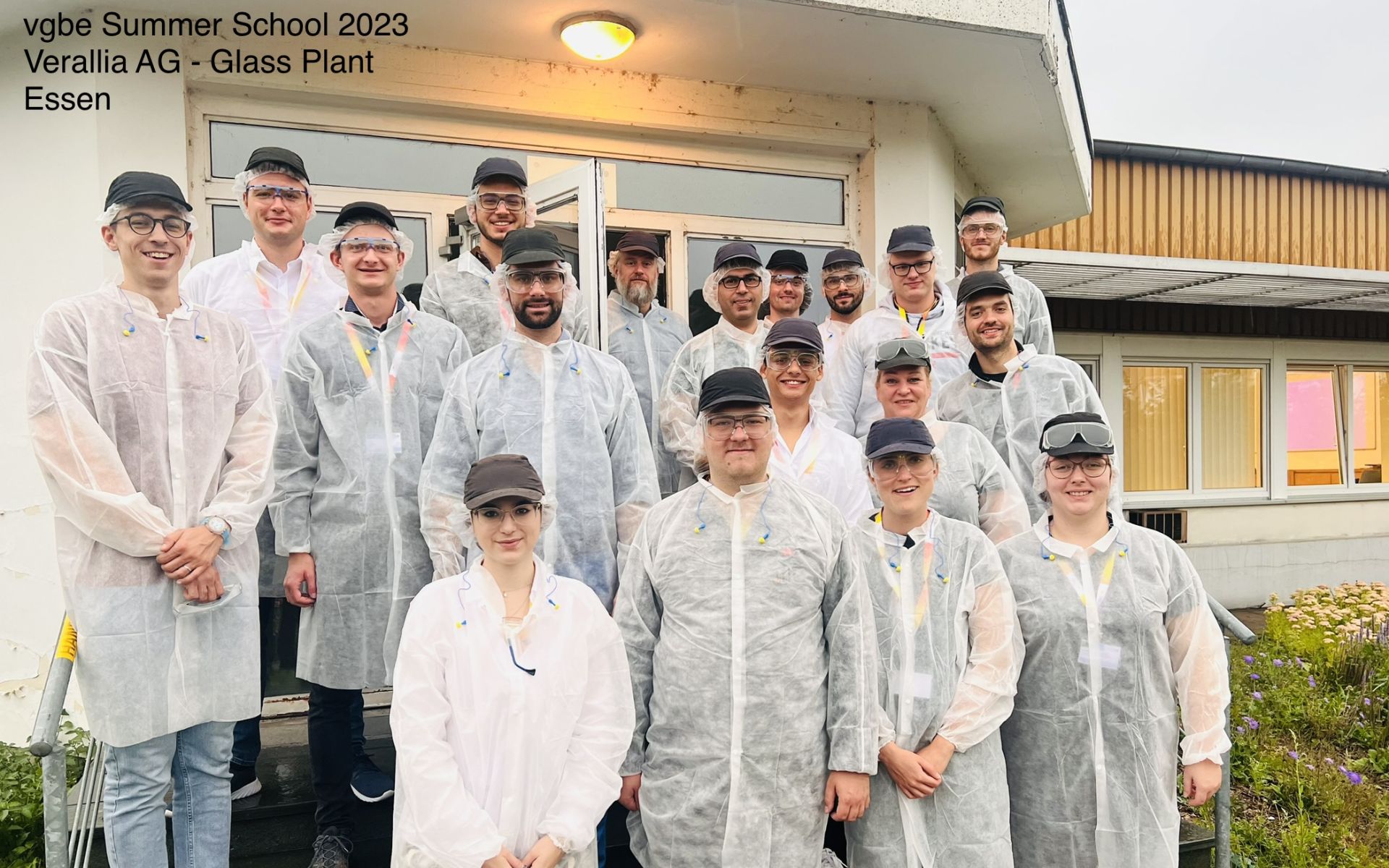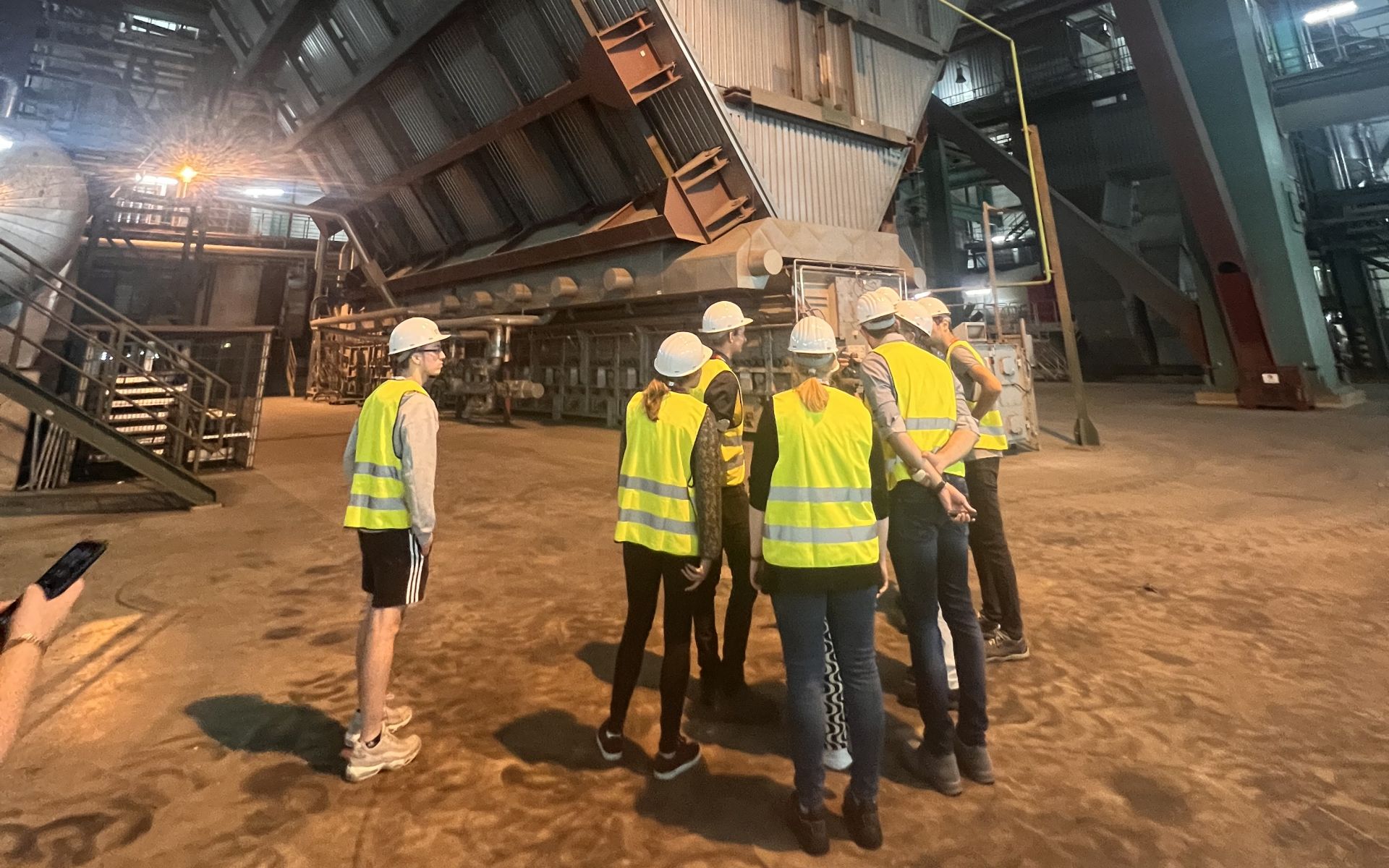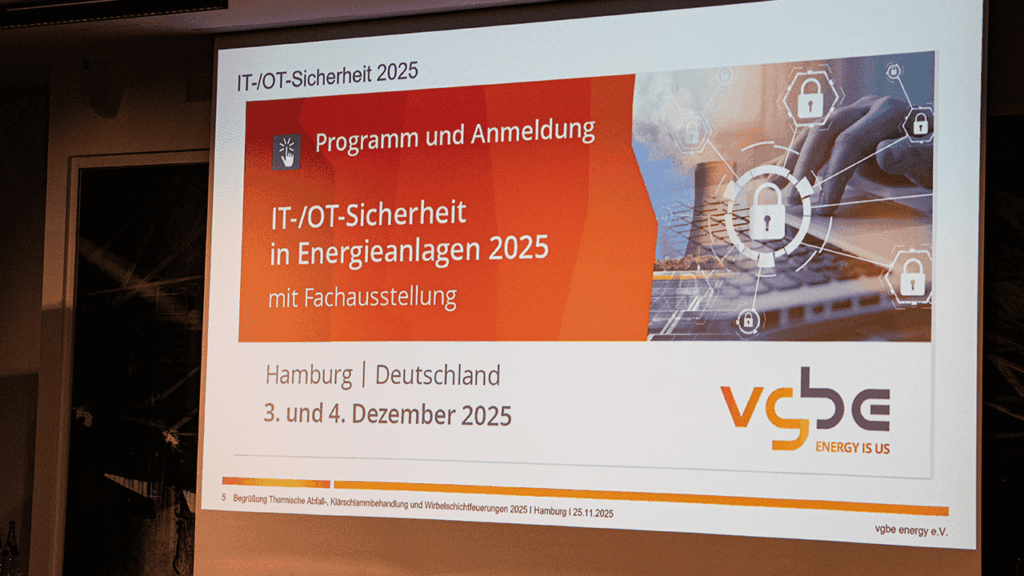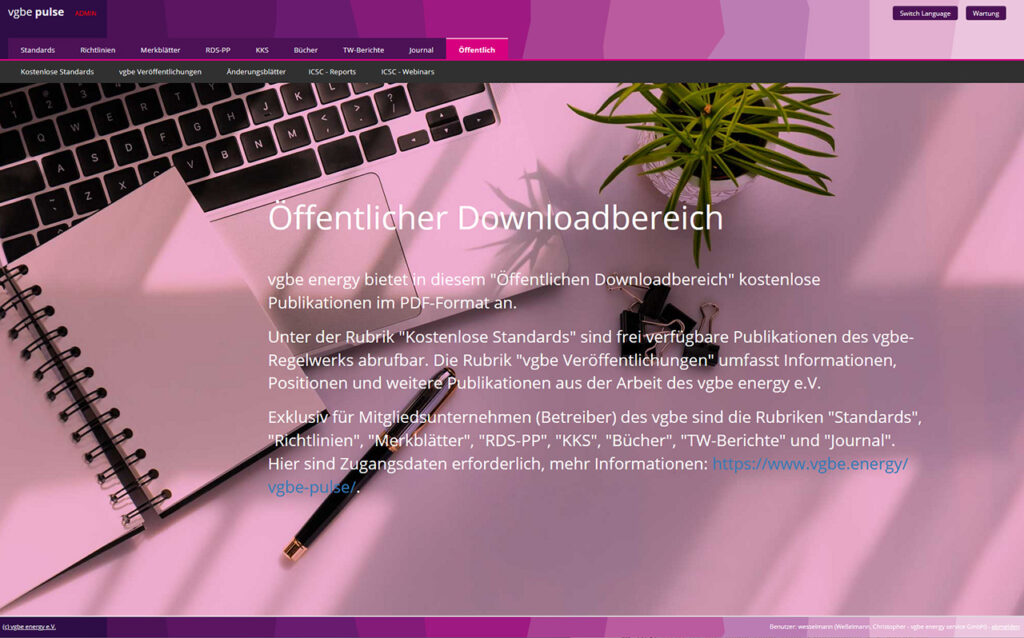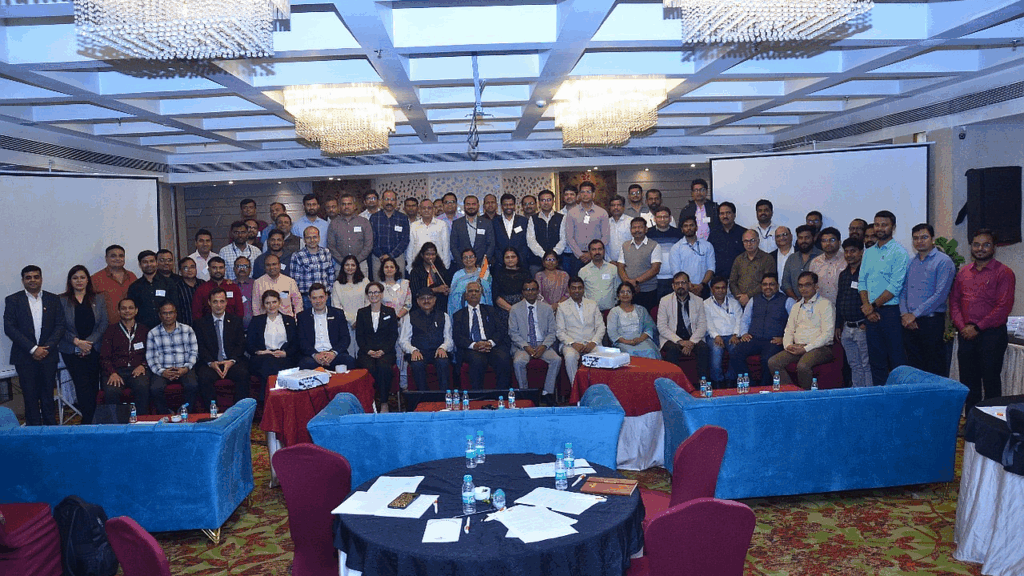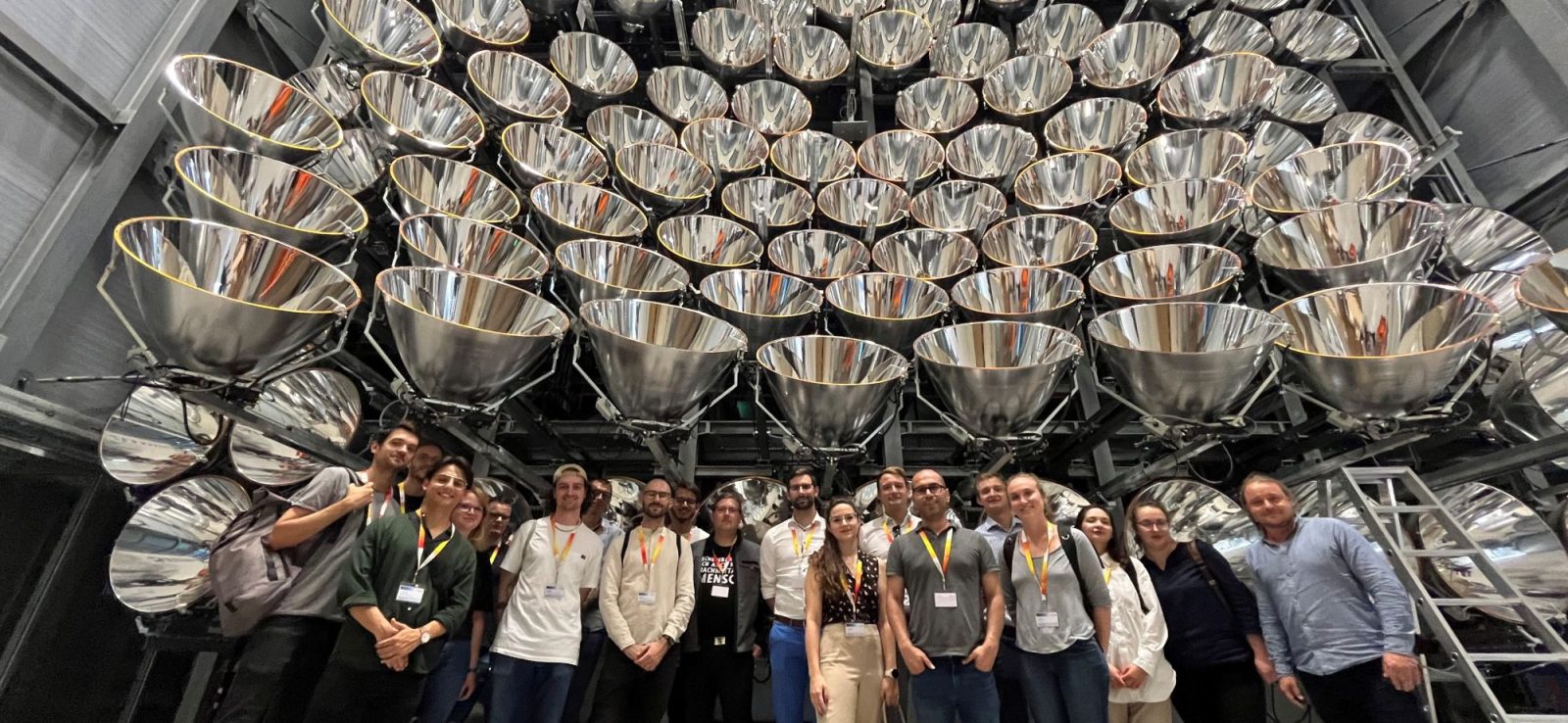
In 1970, on the occasion of the 50th anniversary of vgbe energy e.V. (then VGB Association of Large Power Plant Operators e.V.), the former VGB-FORSCHUNGSSTIFTUNG (today vgbe FORSCHUNGSSTIFTUNG) was founded. The close cooperation between universities, vgbe and its member companies quickly revealed that there was a significant gap between academic engineering education and the real challenges of energy supply. Accordingly, the “Vacation Course – Introduction to Power Plant Engineering” was launched in 1973. The course was financed by VGB-FORSCHUNGSSTIFTUNG. An interesting programme was set up providing a comprehensive insight into power and heat generation. Furthermore, the energy industry – similar to the current situation – was faced with an increasing shortage of skilled personnel, albeit for different reasons than currently. Thus, it was also a question of inspiring future engineers for the energy sector. At that time, the students were selected by their universities and invited to the course in Essen, which was free of charge for them. This approach has not changed to this day. . vgbe FORSCHUNGSSTIFTUNG continues to cover the costs of the Summer School, students only have to settle their travel expenses to and from Essen.
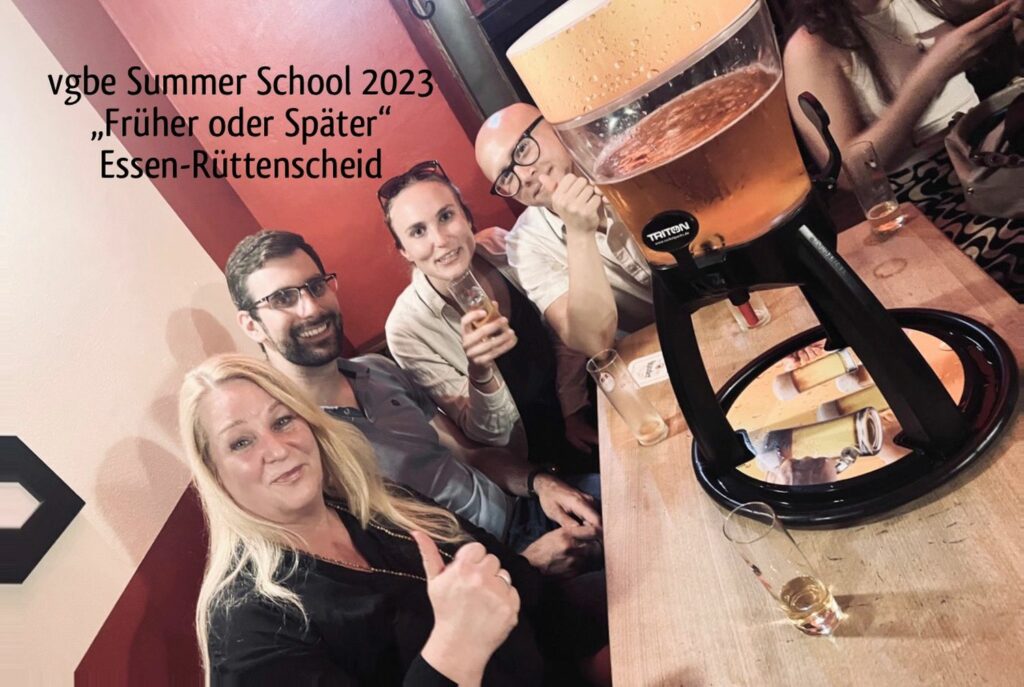
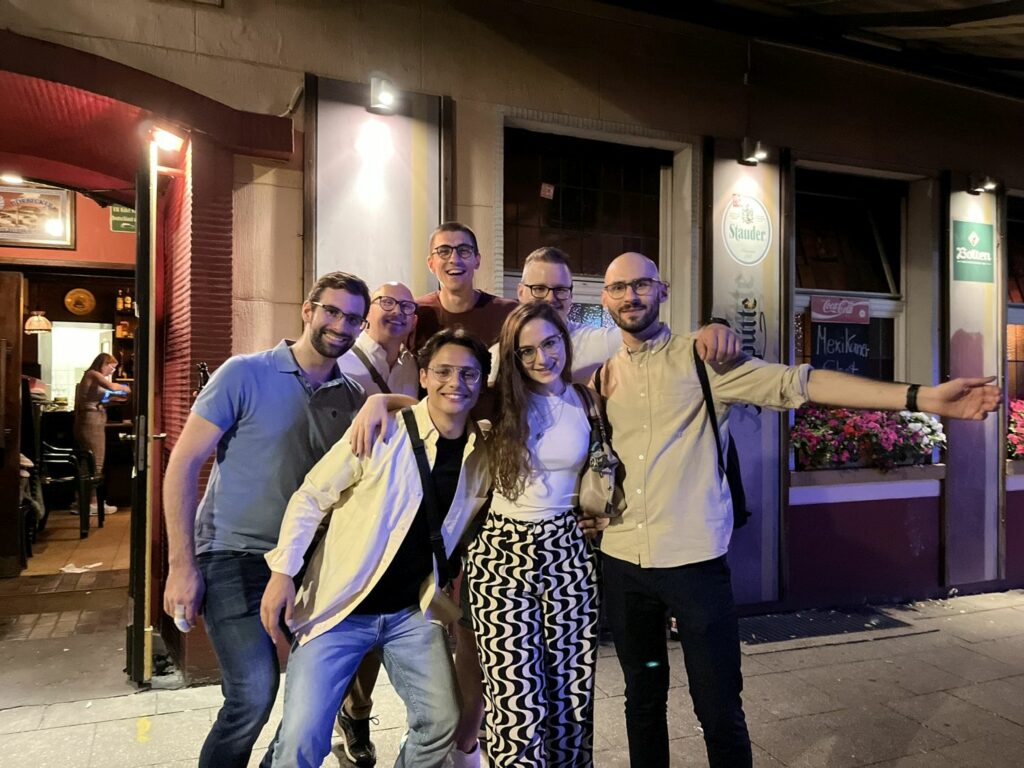
However, in the last 50 years several things have changed: “Vacation Course – Introduction to Power Plant Engineering” turned into “vgbe Summer School”. Back then, the students were accommodated in a youth hostel. Today, students stay in the ibis Hotel right in the city of Essen and the “social evening” has been changed into a “barbecue with get-together”. Of course, not only the organisational framework conditions have changed, but much more important are the content that vgbe imparts to the budding engineers. The first course programme included visits to conventional coal- and lignite-fired power plants, a nuclear power plant and a visit to the construction site of an oil-fired power plant. Today, everything is under the sign of renewable energies and the Future Energy System (FES). “Hydrogen is the new coal” – this slogan was clearly reflected by the current programme.
In the five-day programme, the 18 participating students from eleven nations and nine national and international colleges and universities were given an intensive insight into the current developments in energy supply.
As in the previous 49 vgbe student programmes, in which around 1,500 students have taken part over the past 50 years, this year’s programme was a thrilling mix of lectures and a programme of visits. “The companies and institutions that agree every year to receive vgbe with its Summer School deserve great thanks. It is certainly not a matter of course that these companies and institutions take so much time to introduce their companies to the students. Discussions always take place at eye level and questions are answered extensively by the companies´ experts. A big thank to all those companies that have dedicated themselves to the education of young engineers over the last 50 years. Without this support we would certainly not have been able to hold the Summer School for the 50th time this year,“ explained Steffanie Fidorra-Fränz, who is responsible for organising the Summer School at vgbe.
In addition to the vgbe experts, who presented and discussed topics such as green hydrogen and hydropower in Europe, Dr Jörg Egbers, Head of Offshore Wind and Maritime Technology at EnBW Energie Baden-Württemberg AG and Dr Peter Deeskow, Head of Research and Development at Iqony Gmbh, were high-ranked speakers who gave lectures within the course of this year´s Summer School.
In his contribution “Technology status offshore wind at EnBW”, Dr Egbers gave a comprehensive insight into the offshore wind activities of EnBW. In addition, the technical development of wind turbines was highlighted. Tower heights from 68 metres in 2011 up to an expected height of 168 metres in 2030 and MW capacities from 2.3 MW in 2011 to around 20 MW in 2030 demonstrate impressively the technical developments in wind engineering. Further engineering details on foundations and offshore transformer stations were presented and discussed.
Dr Deeskow addressed in his contribution “Artificial intelligence for renewable energies” the possible applications and challenges of using artificial intelligence (AI) in the operation and maintenance of energy plants. Questions regarding the future necessity of human engineering performance regarding the (further) development of AI were discussed intensively.
Dr Oliver Then, Executive Managing Director of vgbe energy e.V., also took time for this year’s Summer School and gave a lecture on the topic of “Flexibility in energy systems”. “Engineering education is of great importance for vgbe and we are proud that we were able to offer this format for the 50th time this year. We are pleased to provide an insight into energy engineering and the current challenges of energy supply here in Essen, the German “energy capital” of Germany. It is a great pleasure that we again could welcome an international group of students. In this way, we are also contributing towards counteracting staff shortage, which also has a decisive influence on the success of the energy transition. I would also like to confess that our commitment is not entirely altruistic. It has not been uncommon in the past that former participants of our vgbe Summer School were later involved in other functions at our events or in our committees. We like to inspire young people for the multifaceted activities of our association, because that strengthens the entire vgbe community, which is enormously important for achieving our common goals,” described Dr Oliver Then vgbe´s Summer School activities.
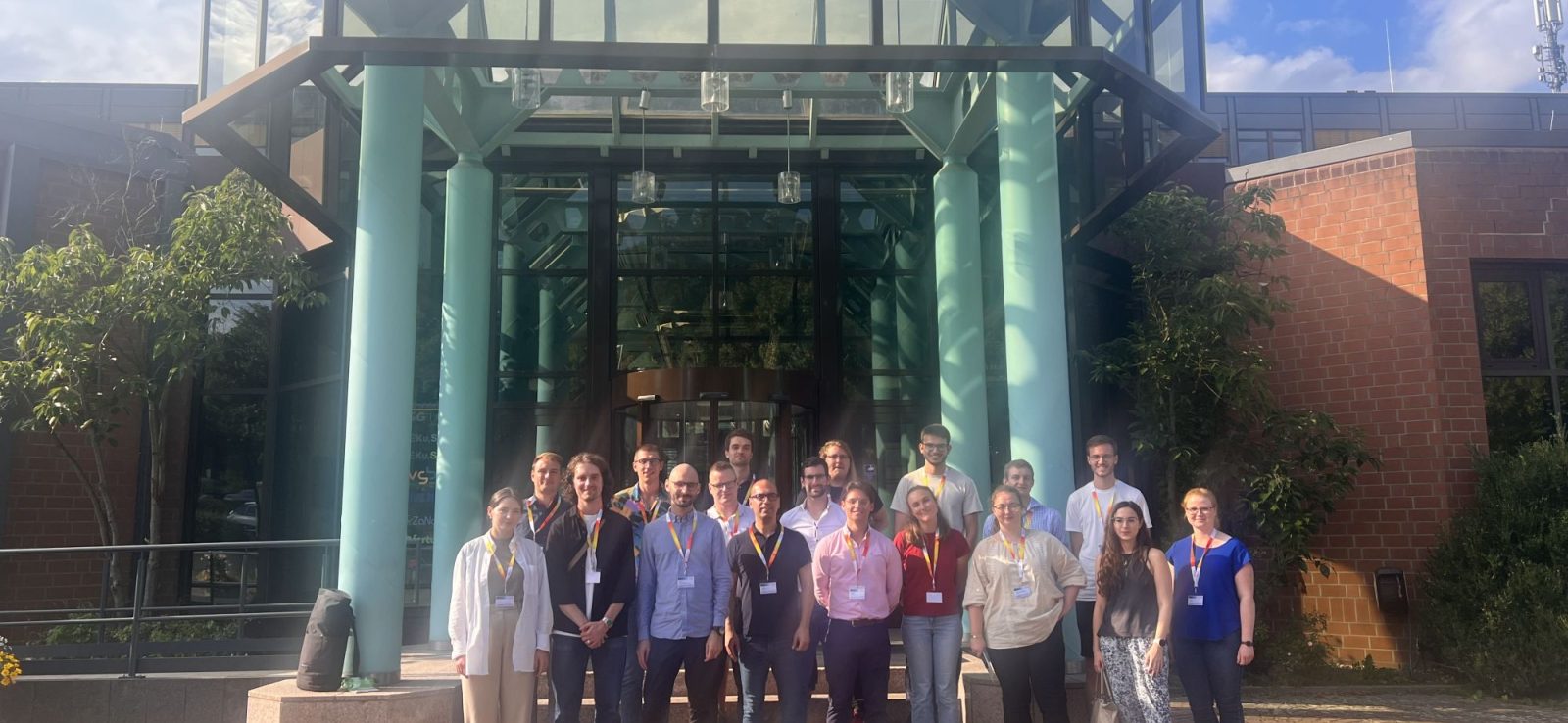
After the first two days at the Energy Campus, the Summer School continued with the sightseeing tours. In addition to the Centre for Wind Power Drives (CWD) at RWTH Aachen University, the programme also included a visit to the STEAG power plant in Duisburg-Walsum, where the change from coal to hydrogen was presented. During a visit to the MAN turbine production plant in Oberhausen, the students were able to get an idea of how large industrial turbines are manufactured. The programme was rounded off by a visit to the Verallia glass production plant in Essen where ways of moving from energy-intensive production to sustainable, resource-saving manufacturing were demonstrated.
This year’s vgbe Summer School was again a complete success and a win-win situation for the parties involved. The companies and institutes which were visited by the students had the opportunity for discussions with the prospective engineers, who in turn benefited from the expert lectures and visits. The exchange within the international group and the networking among each other were also highly appreciated and are an important aspect of the Summer School, as one student commented afterwards: “Finally, it has been a great pleasure to meet a nice group of colleagues who are also passionate about the energy sector and share our knowledge and experiences.”
Dr Oliver Then also summed up positively: “It was a pleasure for us to meet a very committed group of students. The interesting discussions and exchanges with them are incentive enough for us to hold another Summer School with an outstanding programme next year.”
The Summer School 2024 is ready to start and will certainly lead to interesting encounters and stimulating and lively professional exchange between energy engineering students and experts.
